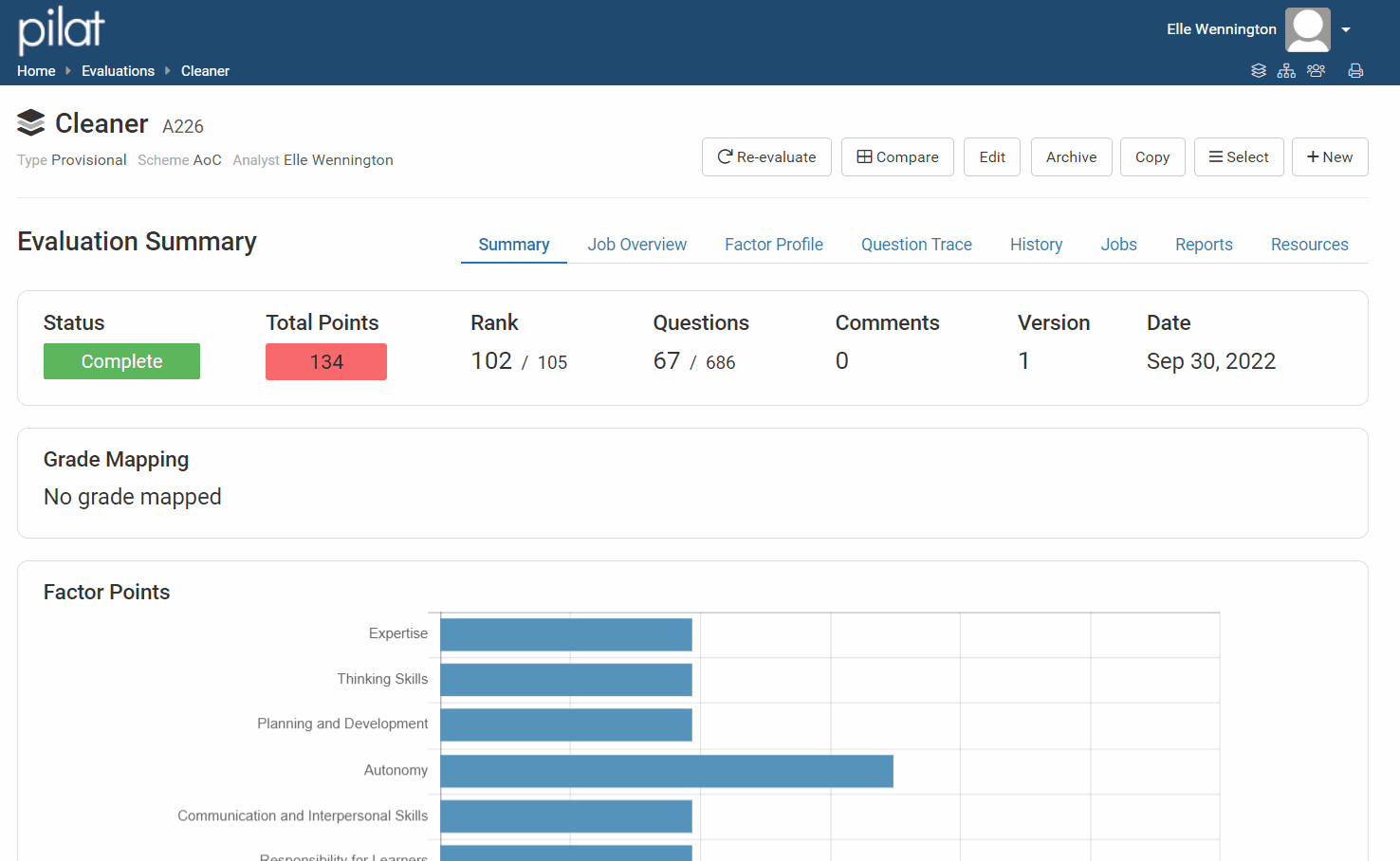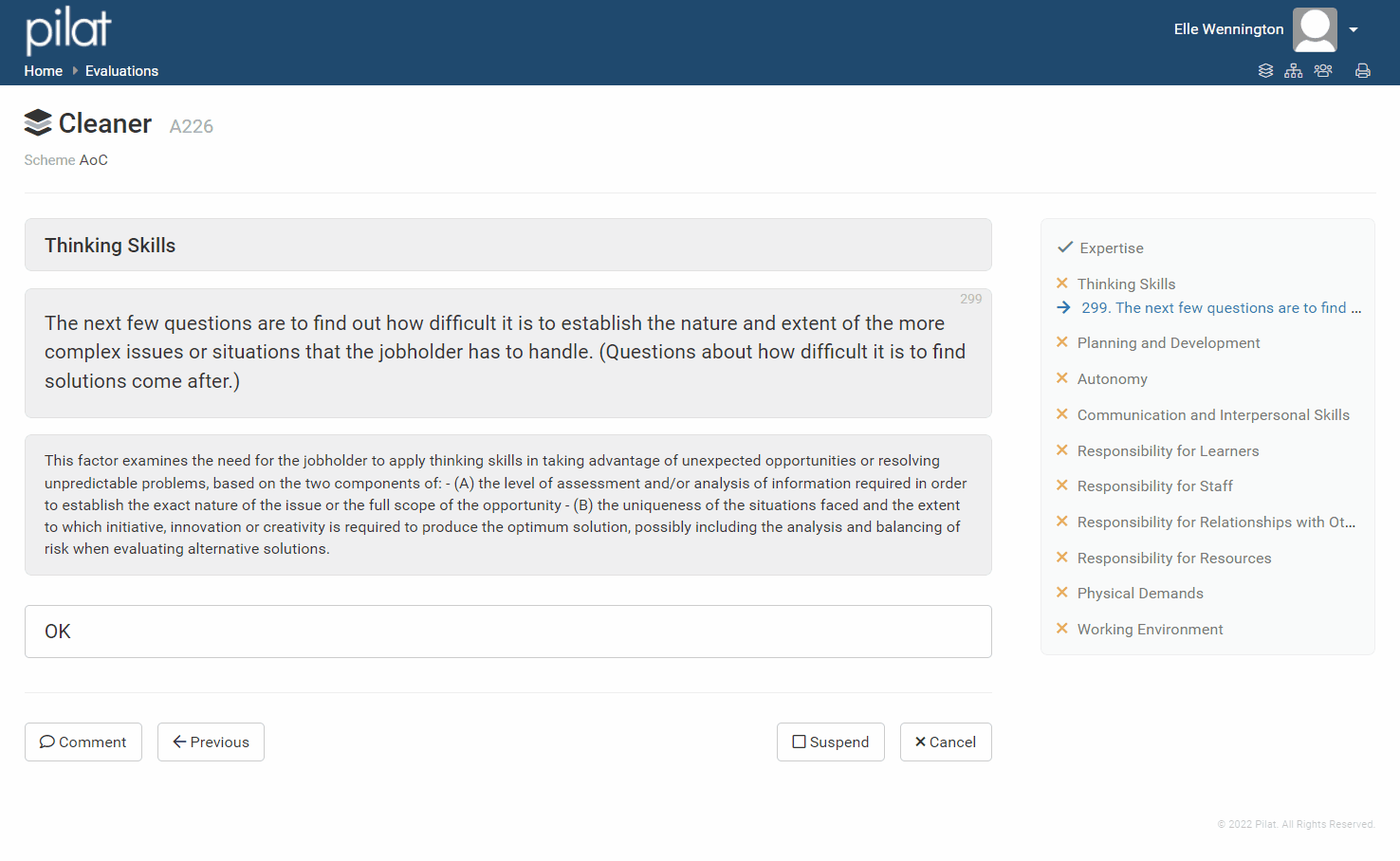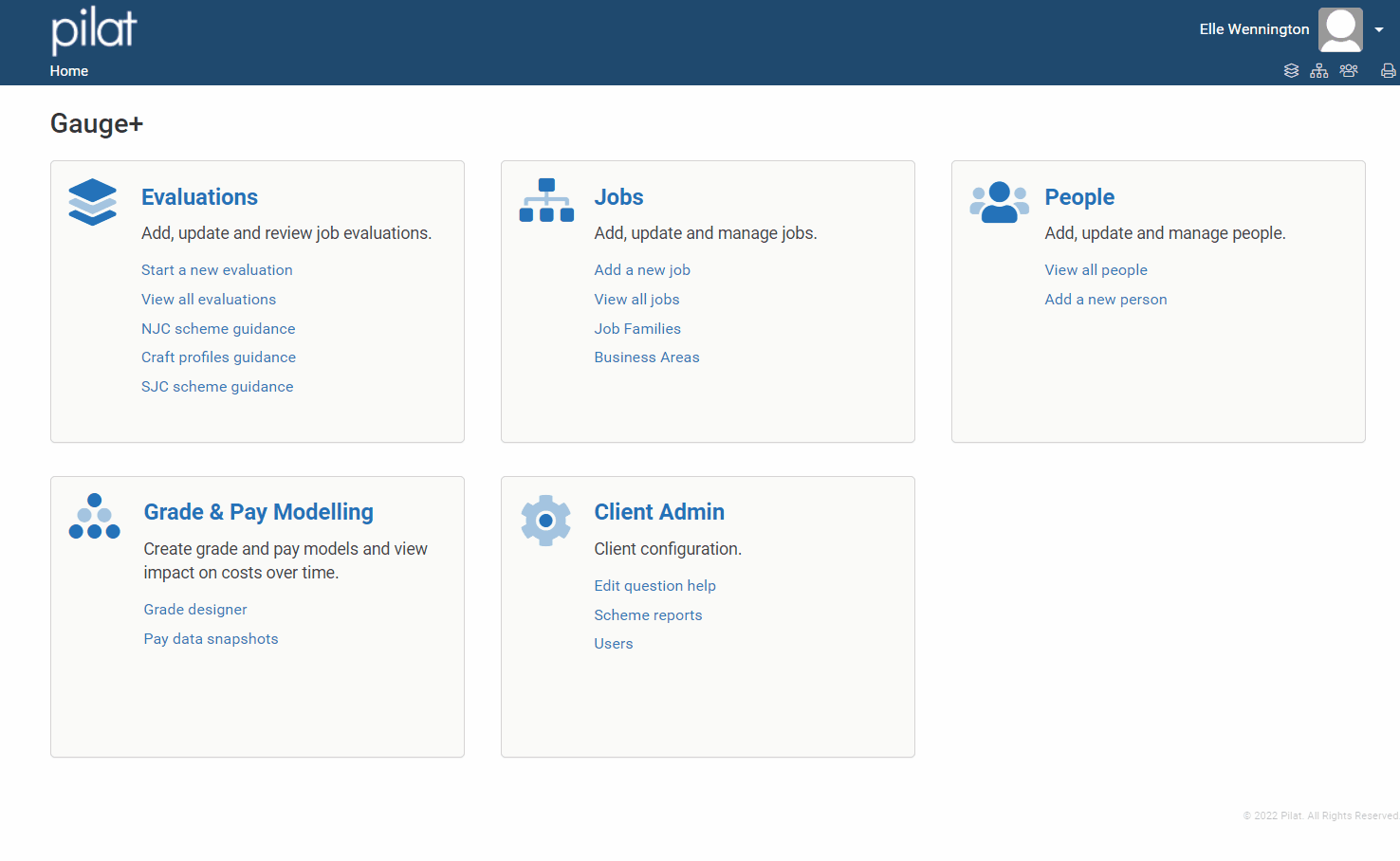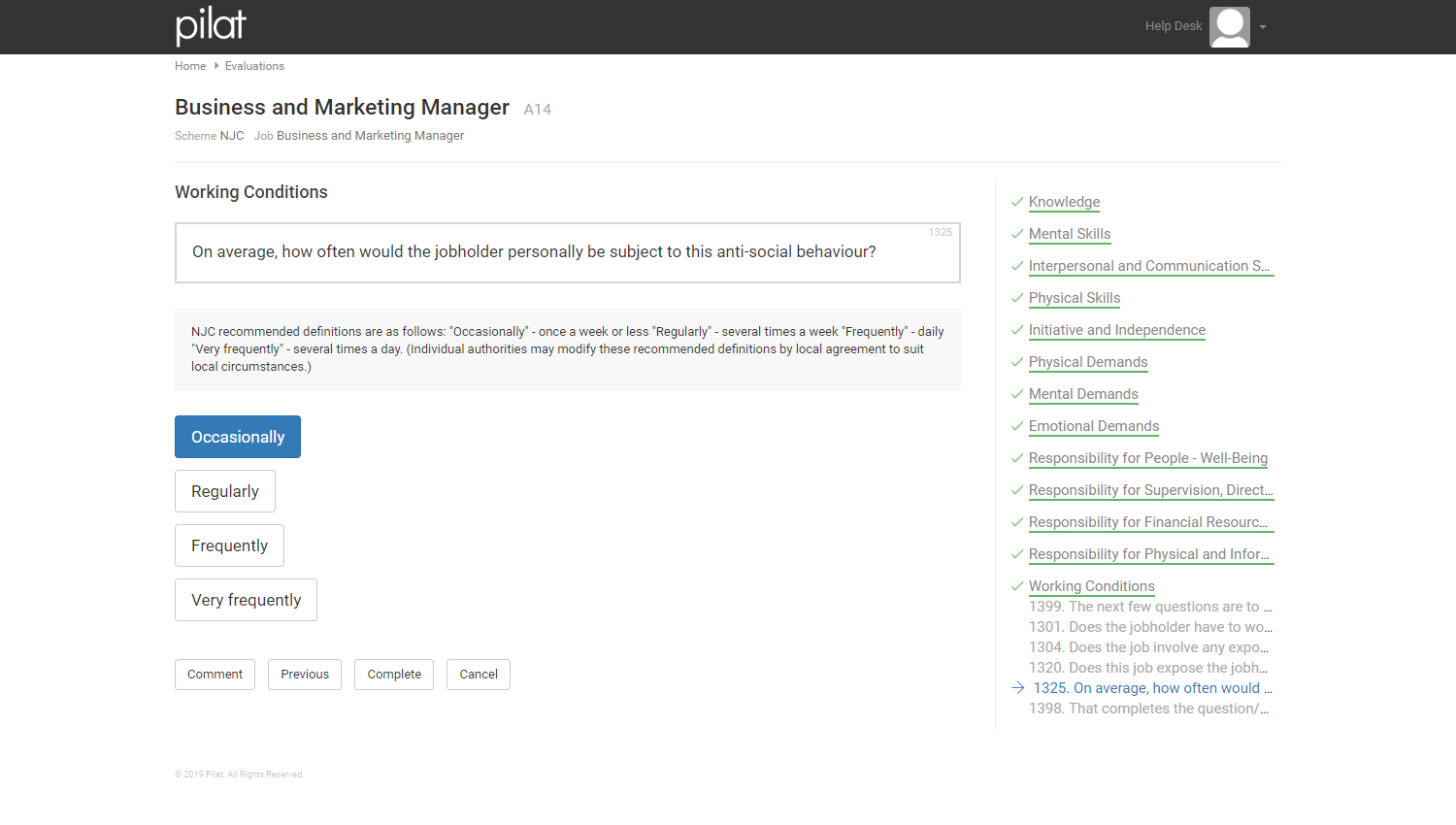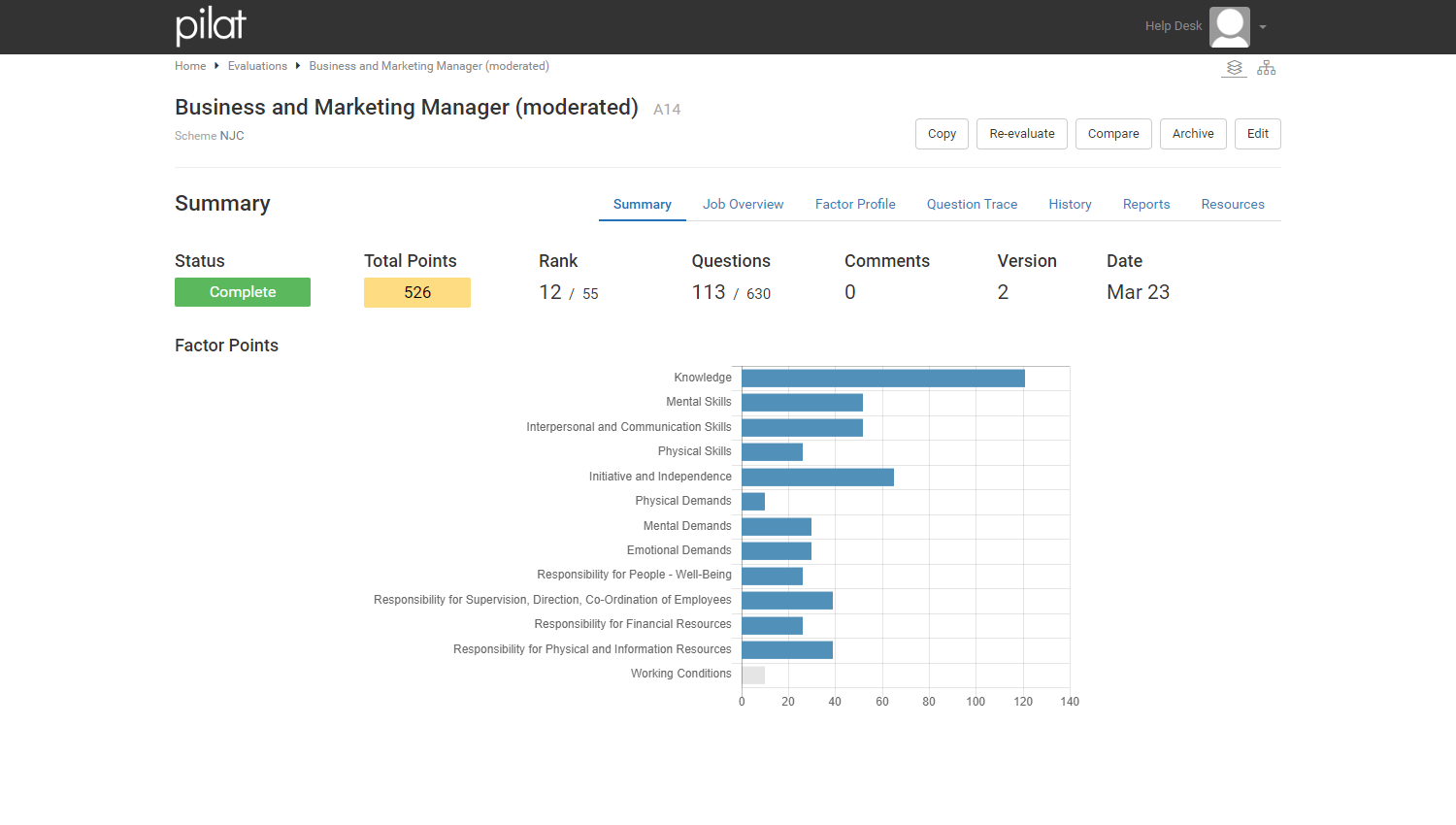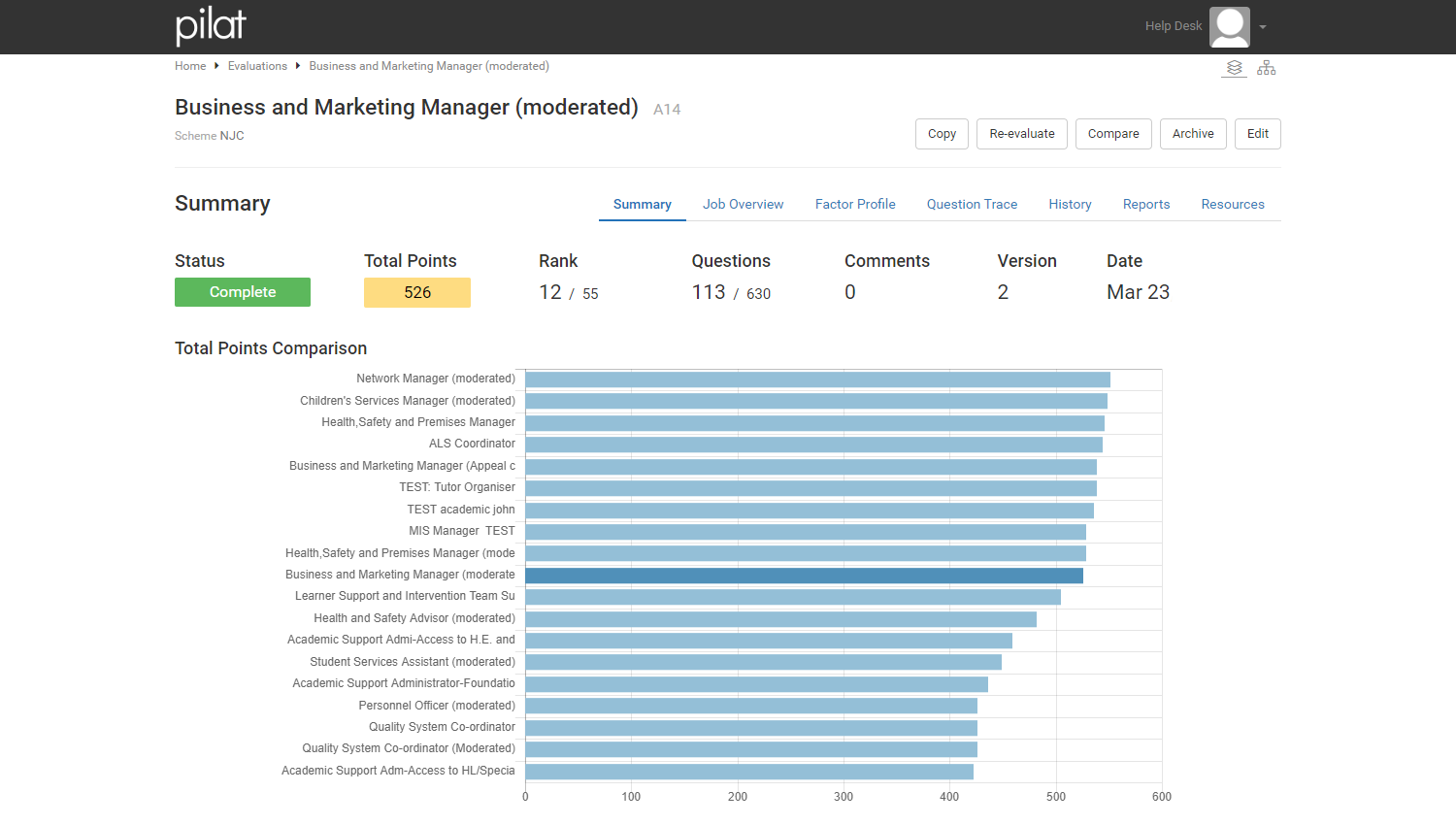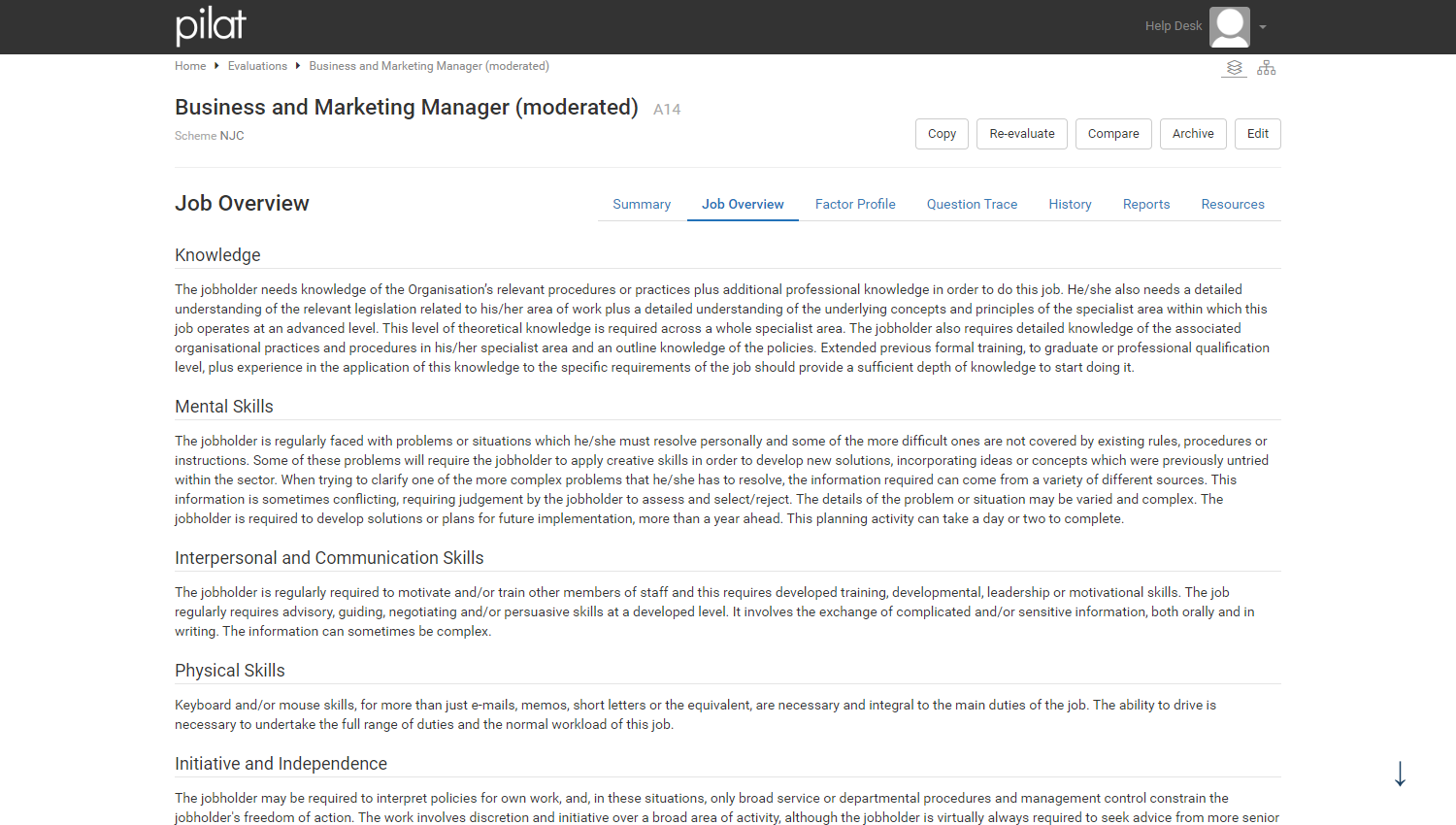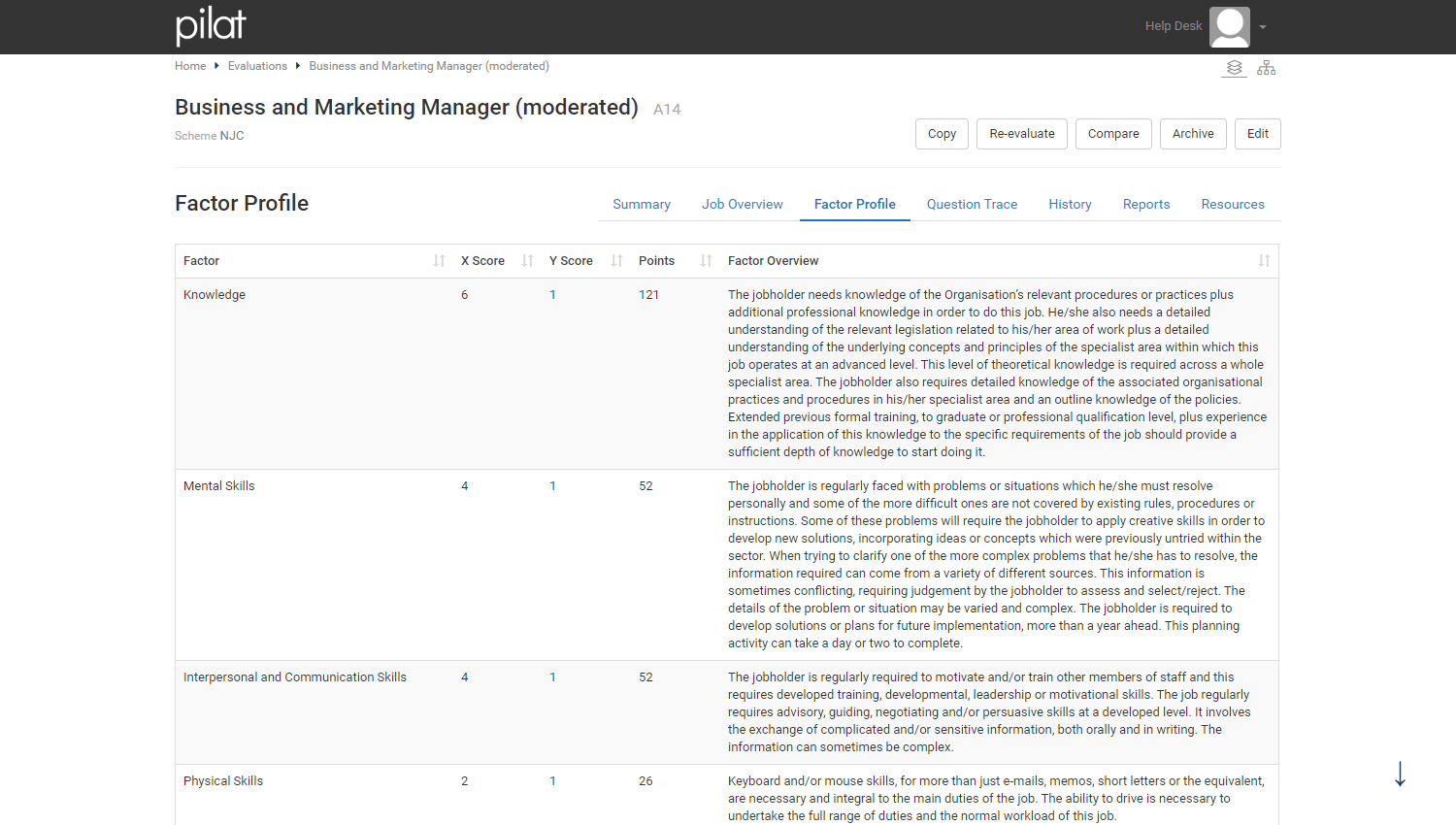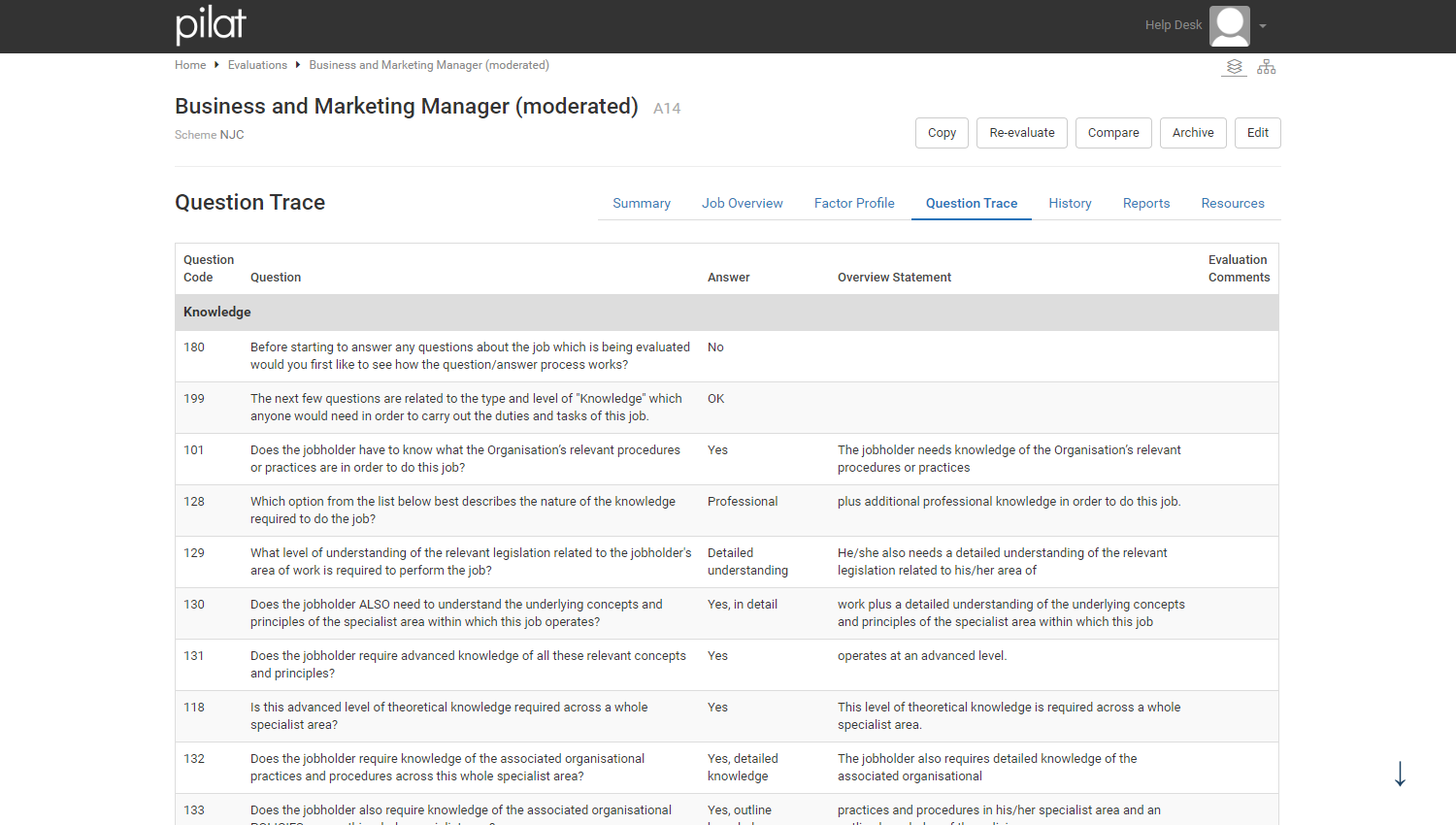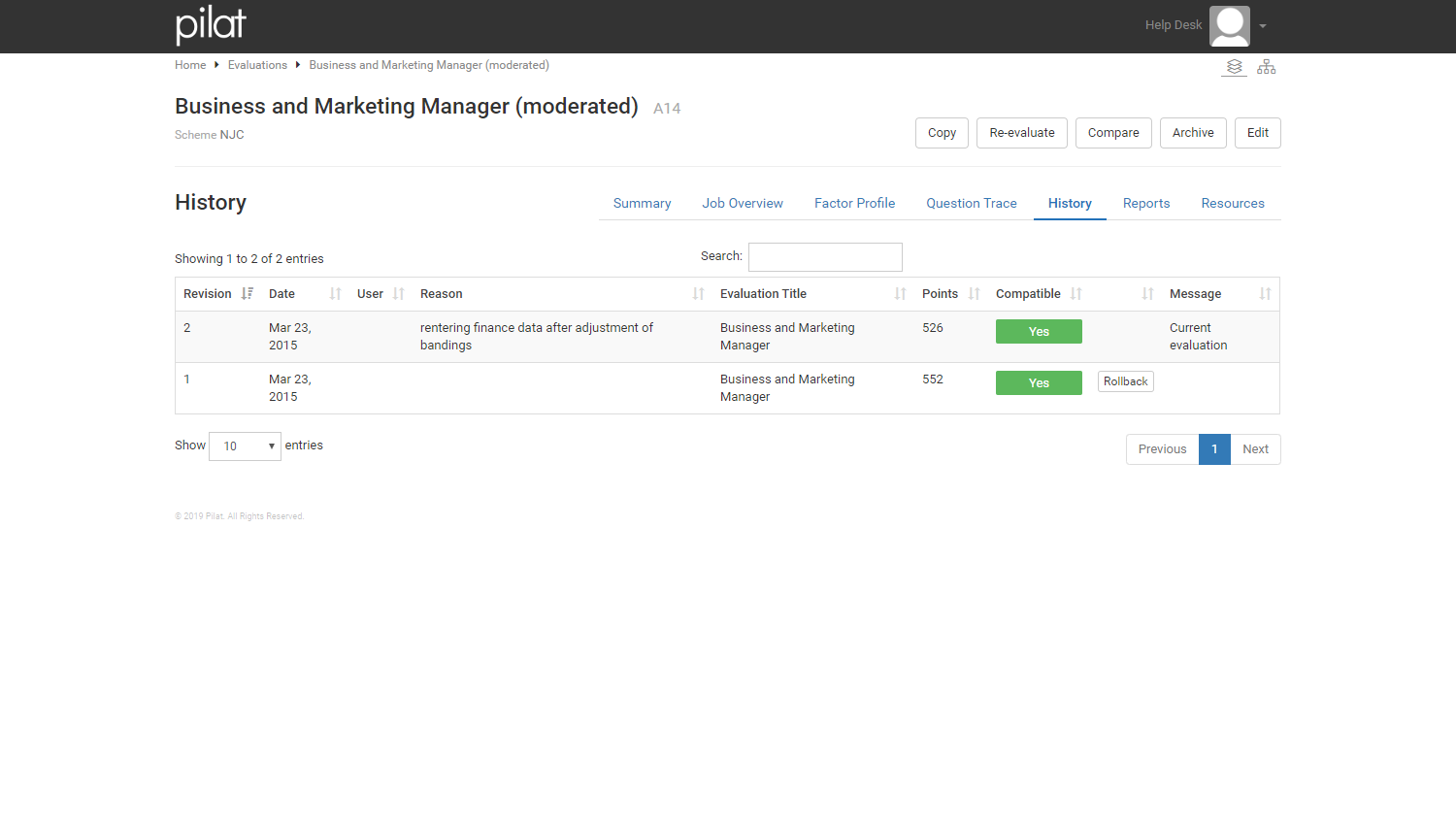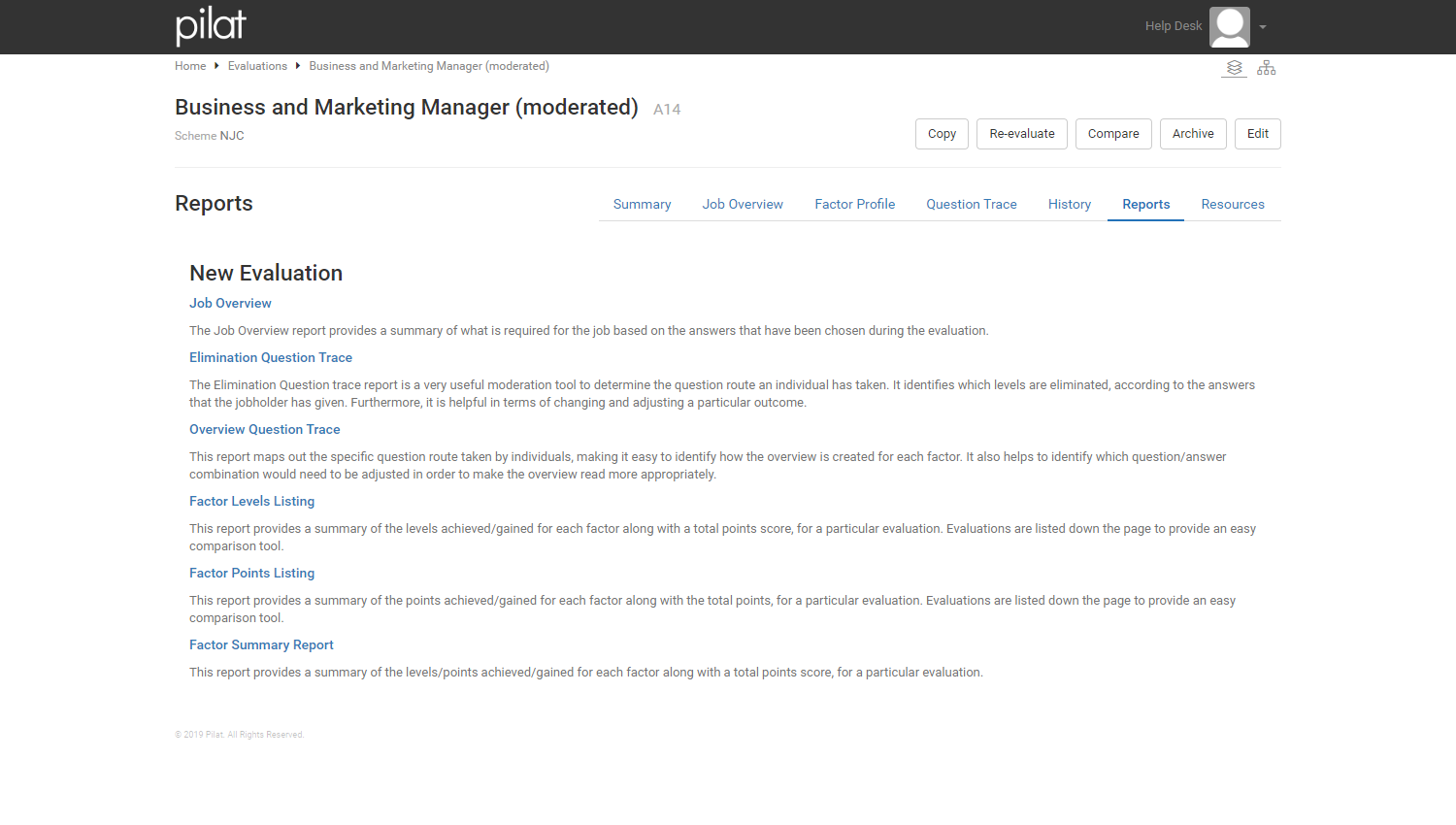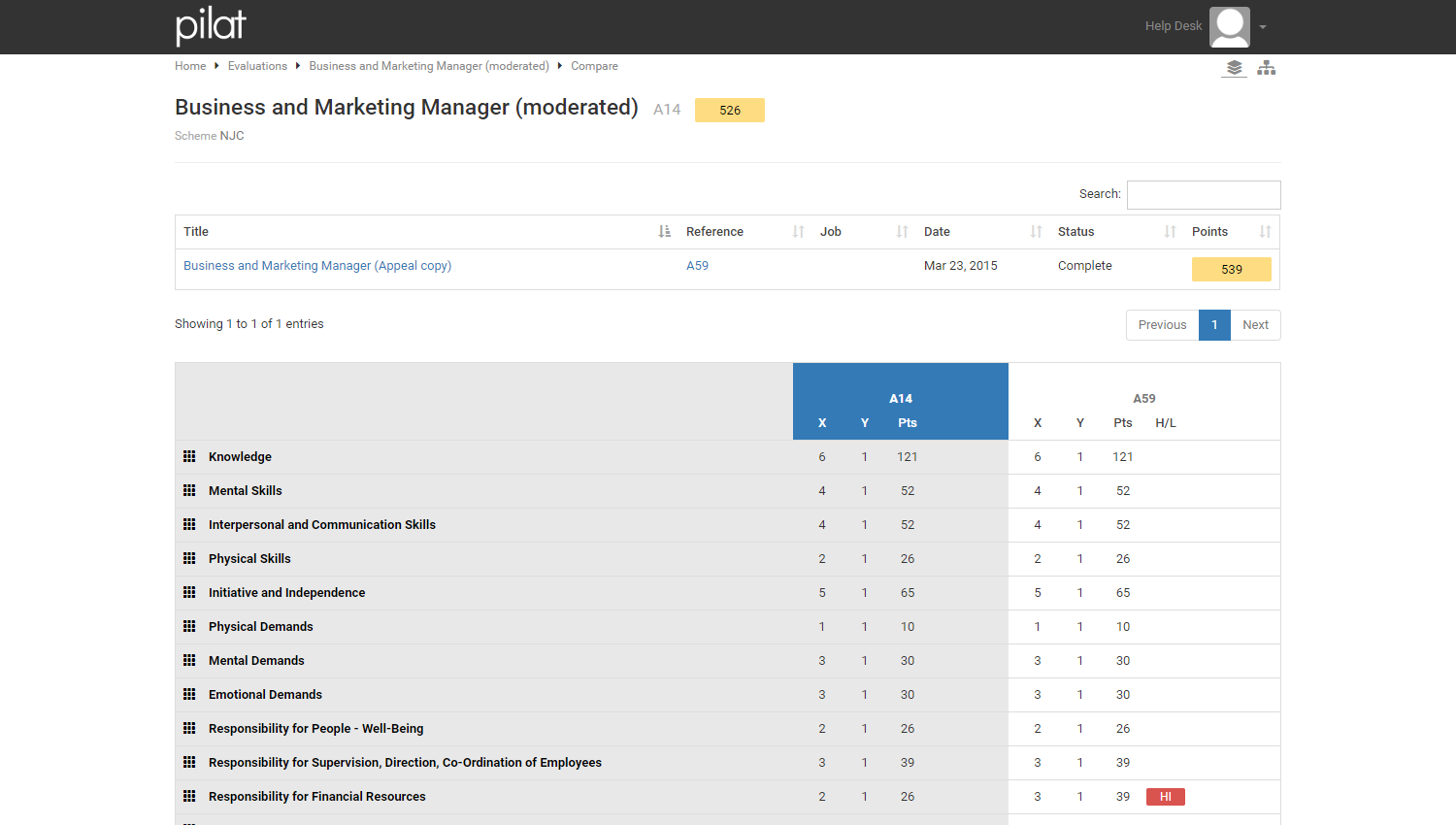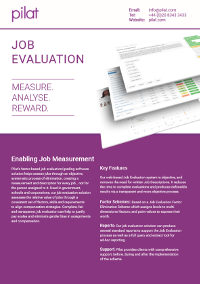AoC Job Evaluation Scheme
For further education colleges

Our job evaluation solution is the preferred technology partner to:





The Association of Colleges (AoC) developed a job evaluation scheme in response to sector demands for a tool which would help ensure equity of pay arrangements in colleges and lead to more effective remuneration strategies. The computerised scheme is based on the principles of equity, fairness, and organisational efficiency. The scheme was jointly developed with key partners and the objective was to deliver a fair and transparent method of assessing pay for colleges; it is the leading sector tool for determining pay relativities.
The scheme systematically ranks jobs within a college through the analysis of job roles and provides a platform from which to design an equitable grading structure. The pay modelling process can then be used to establish what level of pay the college can afford to attribute to each grade. The grade attributed will depend on the size of the job.
The AoC scheme is the only scheme explicitly designed to cover the full range of jobs within the further education colleges. The scheme includes a unique set of further education factors (the demand criteria for measuring job size described above), a tailored method of scoring and weighting factors and a set of questions and ‘logic trees’ that are built in to the Job Evaluation software.
The AoC scheme is compliant with the Further Education Job Evaluation (FEJE) Scheme as per the Joint Agreement of 2004 between The Association of Colleges (AoC) and the Association for College Management (ACM), Association of Teachers & Lecturers (ATL), GMB, National Association of Teachers in Further and Higher Education (NATFHE), Transport & General Workers’ Union (T&G) and, UNISON.
AoC 11-Factor Scheme
Job evaluation schemes follow a set of rules (factors; factor definitions; scoring and weighting) according to which jobs are assessed and measured by the evaluation panel or committee. The Association of Colleges met with nationally recognised trade unions for further education to create the 11-factor AoC scheme to apply to a wide range of different jobs and to measure job demands.
The factors that have been established define the worth of job, e.g. skills required, responsibilities, working conditions, etc. giving HR and Job Analysts the necessary information to review job roles.
- Expertise
- Thinking Skills
- Planning & Development
- Autonomy
- Communication & Interpersonal Skills
- Responsibility for Learners
- Responsibility for Staff
- Responsibility for Relationship with Others
- Responsibility for Resources
- Physical Demands
- Working Environment
This factor evaluates the knowledge base required to perform the job; normally the MINIMUM requirement(s) that all potential candidates would be expected to meet in order to be considered if the post became vacant. The two aspects covered are A) the depth of theoretical/professional/technical/practical knowledge required, whether acquired by qualification and/or experience, and the need, if any, to keep this knowledge up to date and/or to acquire additional knowledge B) the breadth of knowledge required, including knowledge in other fields and knowledge of organisational policies, procedures and practices.
This factor examines the need for the jobholder to apply thinking skills in taking advantage of unexpected opportunities or resolving unpredictable problems, based on the two components of A) the level of assessment and/or analysis of information required in order to establish the exact nature of the issue or the full scope of the opportunity B) the uniqueness of the situations faced and the extent to which initiative, innovation or creativity is required to produce the optimum solution, possibly including the analysis and balancing of risk when evaluating alternative solutions.
This factor is to establish the extent to which the jobholder is required to exercise planning skills, to contribute to innovation within the organisational or academic environment/framework in the development of new concepts, or to implement change as an essential part of the job. The two separate areas that are considered are A) the development of new policies, strategies, curricula, courses or work practices to meet the changing needs of the College and/or its learners B) the planning and management of projects and/or the requirement to implement changes affecting other members of staff or the College as a whole, including curriculum development or timetabling.
This factor considers the demands placed on the jobholder in terms of the responsibility inherent in the job to make, and possibly implement, decisions without reference to other people and the impact of those decisions. The two components considered are A) the autonomy or freedom given to the jobholder (within the College’s, or other externally imposed, rules, protocols or procedures) to act on decisions reached without first seeking approval from elsewhere B) the breadth of impact of the actions or decisions taken by the jobholder.
This factor examines any requirement for the jobholder to exercise oral and/or written communication and interpersonal skills in dealing with other people, including other staff and learners. The level of demand is assessed by considering both A) the content, range, complexity and nature of the subject matter that has to be communicated, and the extent to which the relevant knowledge-level and attitude of the recipients has to be considered when preparing for the communication B) the context, form, process and potential difficulty of the actual interaction with the recipient(s). This takes account of the sensitivity of the issue and any requirements for confidentiality, the recipient’s likely reaction to the content, whether or not the jobholder is required to justify or defend the position being presented and any demands resulting from the need to interact with members of an audience individually rather than collectively.
This factor specifically focuses on, and assesses, the extent to which the job has direct involvement with current learners, considering the two independent aspects of A) the responsibility within the job for contributing to learning or skill development through teaching, assessment and moderation or other direct contribution to the delivery process or environment B) any specific responsibility within the job for the non-teaching, support or pastoral care of current learners, or for dealing with matters concerning the conduct of learners.
This factor is to identify any responsibility placed on the jobholder to manage or develop other members of staff, assessed as A) the extent of any responsibility to co-ordinate, supervise or manage the work of other College staff (full- and part-time) or contractors, taking account of the structure and functional characteristics of the group(s) concerned and the nature of their work B) any responsibility for or involvement in the ongoing training or development of other staff, including staff outside the jobholder’s line management responsibilities.
This factor is to establish the extent to which the achievement of the College’s objectives or its standing/reputation could be influenced by the jobholder as a result of the contacts with others required by the job, not covered by factors 6 and 7 above. This includes contacts with, for example, employers, contractors and suppliers, external users of College facilities, inspectors, auditors, staff in other academic or related bodies, parents of learners and prospective learners and, where not covered by factors 6 or 7, other members of staff, learners or prospective learners A) the range of contacts required by the job B) their significance for the work of the College or institution or on its standing or reputation.
This factor measures the direct or indirect responsibility within the job for the procuring, safeguarding, use/deployment or disposal of the College’s resources, considering separately A) responsibility for financial resources (including income generation; budgets; expenditures; cheque- or cash-handling; etc.) B) responsibility for any non-financial resources (including manual or computerised information; data and records; laboratory, office and other equipment; teaching aids; plant and machinery; buildings, fixtures and fittings; stocks and supplies; livestock etc.)
This factor is to assess the extent to which the job places any specific physical demands on the jobholder, considering the two aspects of A) the level of any practical skills required (including manual and finger dexterity; hand-eye co-ordination; etc.) taking into account the purpose to which the skills are put and demands arising from the need to achieve specified standards of speed and precision B) the type, amount, continuity and frequency of any physical effort required to do the job, recognising need for stamina as well as for strength (including lifting, carrying, pulling or pushing; working in awkward or constrained positions; etc.)
This factor is to assess the working environment of the jobholder, taking account of A) any specific mental or sensory demands placed on the jobholder by the job or by external circumstances B) any specific emotional demands placed on the jobholder arising from contacts with other people C) any unpleasantness in the environment and any exposure to abuse or unavoidable risk to personal safety and/or health.
Implementation
During implementation, we will schedule a project kick-off meeting to finalise key dates, milestones, and responsibilities associated to your Gauge+ site going live. Once dates have been agreed by both parties, our developers will be able to start building your Gauge+ site.
In preparation, for training, we will set up delegates attending training with user profiles. These user profiles will have full admin access to Gauge+ for training purposes, however, these settings can be changed post-training.
Training
When purchasing a Gauge+ software license, you will receive training from one of our Consultants here at Pilat. The training outlines the software functionality, selected scheme, critical questions, the Job Analysis process, job evaluation methodologies and options.
Training is suited to all levels, whether they are new team members requiring knowledge of the scheme or experienced Job Analysts seeking to strengthen their facilitation skills.
Your assigned Reward Consultant can offer guidance on appeals, identifying pay structure options, developing new pay, and grading structures, modelling assimilation costs of new pay structure and more.
Image Gallery
Click image to view our gallery

